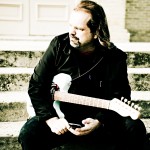by Greg Glatz
Chapter 3 of The Monkey and the Fish opens with Kierkegaard’s searing indictment of Christians as “scheming swindlers” who pretend not to understand what God expects of them. KAPOW! Next, Gibbons sweetens the tone with Desmond Tutu’s depiction of Ubuntu – “we are people through other people.” Beautiful! Both of these references serve as a natural setup for the parable of the good Samaritan, which Gibbons uses as the biblical backdrop for his chapter on “neighbor”. What a fantastic introduction! Felt like a screenplay to me.
 Gibbons notes that he’s heard the good Samaritan story countless times and that he understood its meaning as “be kind to my neighbor, and that my neighbor is somebody who is basically a lot like me, but in need in some way” (emphasis mine). I wasn’t sure what to make of that statement. I’ve been in evangelical churches for nearly 30 years. I’ve heard a lot of sermons on this parable. Most of them weren’t that good … including the ones I preached. But I don’t think any preacher implied that I only help people who are basically like me.
Gibbons notes that he’s heard the good Samaritan story countless times and that he understood its meaning as “be kind to my neighbor, and that my neighbor is somebody who is basically a lot like me, but in need in some way” (emphasis mine). I wasn’t sure what to make of that statement. I’ve been in evangelical churches for nearly 30 years. I’ve heard a lot of sermons on this parable. Most of them weren’t that good … including the ones I preached. But I don’t think any preacher implied that I only help people who are basically like me.
Gibbons does eventually land on the point of the parable: “Much to the dismay of Jesus’ Jewish audience, the hero of the story is a person they despised”. Bullseye! I think this statement could have set the direction for the remainder of Chapter 3. I would have loved to see Gibbons tell us how we find Jesus in “the least of these,” a point made incredibly clear in Greg Paul’s God in the Alley and Rick McKinley’s Jesus in the Margins.
Instead, Gibbons presents a theology of discomfort that suggests we abandon the mega-church mantra of homogeneous people groups and reach out to people of mixed races, other races, and other socio-economic strata. I don’t disagree with his determination to embrace diversity. And I applaud his repudiation of the attractional methodology of his church in the 1980’s/90’s. (Referring to former days, Gibbons writes: “We became really good at producing large-screen extravaganzas that rival network television, complete with cutting-edge programming, free donuts, cushy seating, welcome teams, parking, free wireless, and ATMs in the foyer.”)
I just wish Gibbons had gone one step further. I wish he had gone where Jesus went in the parable of the Good Samaritan. It is the Samaritans of this world – the outcasts, the rejects, the insufficient and the insignificant – who show us what it means to be a neighbor. We don’t minister to them, with our delusions of grandeur and grandiosity. They minister to us. That’s the scandal of the cross: the one who had “nothing in his appearance that we should desire him” (Isaiah 53:2) was actually everything we ever needed.
So what would it mean to let the Samaritans take over the church? What would it mean to let them preach the sermons, lead the councils, design the worship, heal the sick, care for the widows and orphans, and welcome the strangers? I’m wondering if the answer to that question might be one of the keys to understanding the meaning of liquid leadership in the 21st century.
FOLLOW THE PROJECT | BUY THE BOOK
About the author:
 Greg Glatz is a Jesus-lovin’, guitar-rockin’, Camaro-drivin’ Baptist preacher who hosts the GODTALK Radio Show on CJOB 68 — radio’s weirdest, wildest talk radio show. An ordained minister with a 16-year track record as the lead pastor of Central Baptist Church, Greg also plays lead guitar for the band GOOD, the Royal Unruh Band, and the B-Side Apostles with CJOB morning host Larry Updike. In his spare time, the Preacha indulges his love for high-speed Mac computers by freelancing in audio production and hand-coded web and database design.
Greg Glatz is a Jesus-lovin’, guitar-rockin’, Camaro-drivin’ Baptist preacher who hosts the GODTALK Radio Show on CJOB 68 — radio’s weirdest, wildest talk radio show. An ordained minister with a 16-year track record as the lead pastor of Central Baptist Church, Greg also plays lead guitar for the band GOOD, the Royal Unruh Band, and the B-Side Apostles with CJOB morning host Larry Updike. In his spare time, the Preacha indulges his love for high-speed Mac computers by freelancing in audio production and hand-coded web and database design.
www.godtalkradioshow.com


love how you challenged the author's presuppositions and i'm with you on this. understanding who a “neighbor” is.
love when you pointed this out: Gibbons presents a theology of discomfort that suggests we abandon the mega-church mantra of homogeneous people groups and reach out to people of mixed races, other races, and other socio-economic strata.
I agree that we need to be with the Samaritans, as you suggested.
I also believe that the megachurch in many cases is useful and beneficial … not necessarily always in need of abandonment.
Thanks for reading and breaking down this chapter.
I love the question asked here about what it would be like if the Samaritans were to preach the sermons, lead the councils, heal the sick, etc.! That is a really challenging question… Even if it is a statment that makes me say, “yeah, preach it!”… it is still something that might be difficult to actually do, and that's why it is such a challenging question…
Like Robyn, I also liked that you challenged the text of the book, and didn't just take what was said for granted. However, I do think that what Gibbons says here does make a bit more sense when taken in context with the rest of the book. For example, Gibbon's idea of the Samaritan sounds much different when thinking about 'the hug' that Robyn mentioned yesterday.
Great post Greg! Thank you for sharing your heart here and not holding back! The church needs more poeple like you!
I love the question asked here about what it would be like if the Samaritans were to preach the sermons, lead the councils, heal the sick, etc.! That is a really challenging question… Even if it is a statment that makes me say, “yeah, preach it!”… it is still something that might be difficult to actually do, and that's why it is such a challenging question…
Like Robyn, I also liked that you challenged the text of the book, and didn't just take what was said for granted. However, I do think that what Gibbons says here does make a bit more sense when taken in context with the rest of the book. For example, Gibbon's idea of the Samaritan sounds much different when thinking about 'the hug' that Robyn mentioned yesterday.
Great post Greg! Thank you for sharing your heart here and not holding back! The church needs more poeple like you!